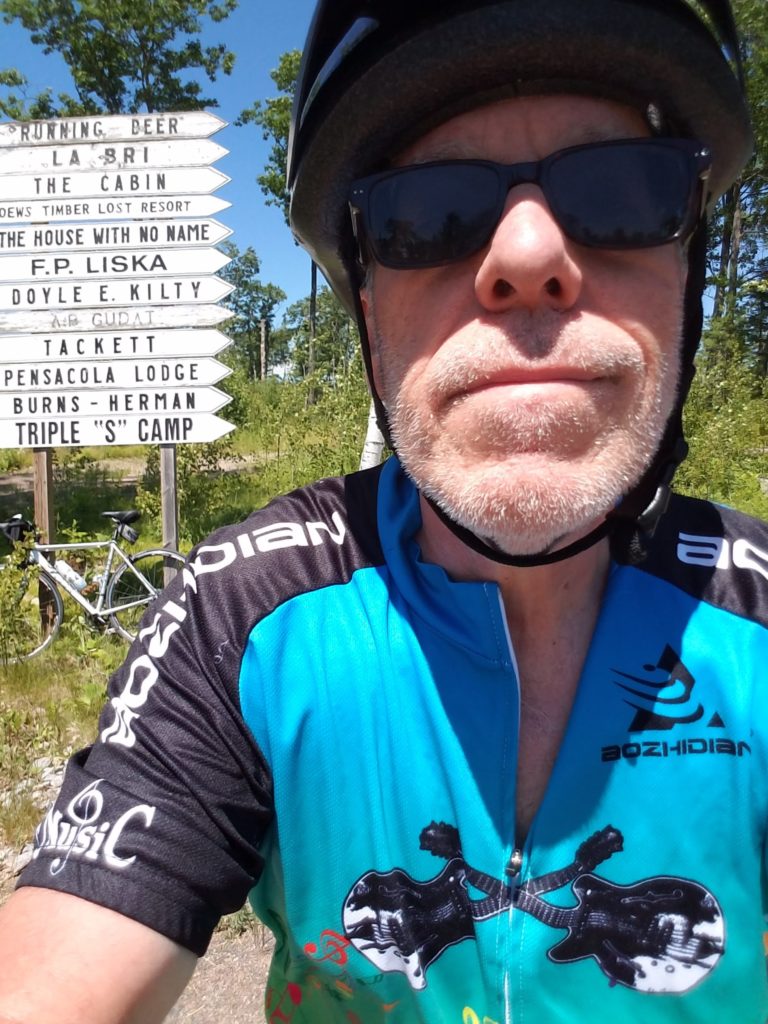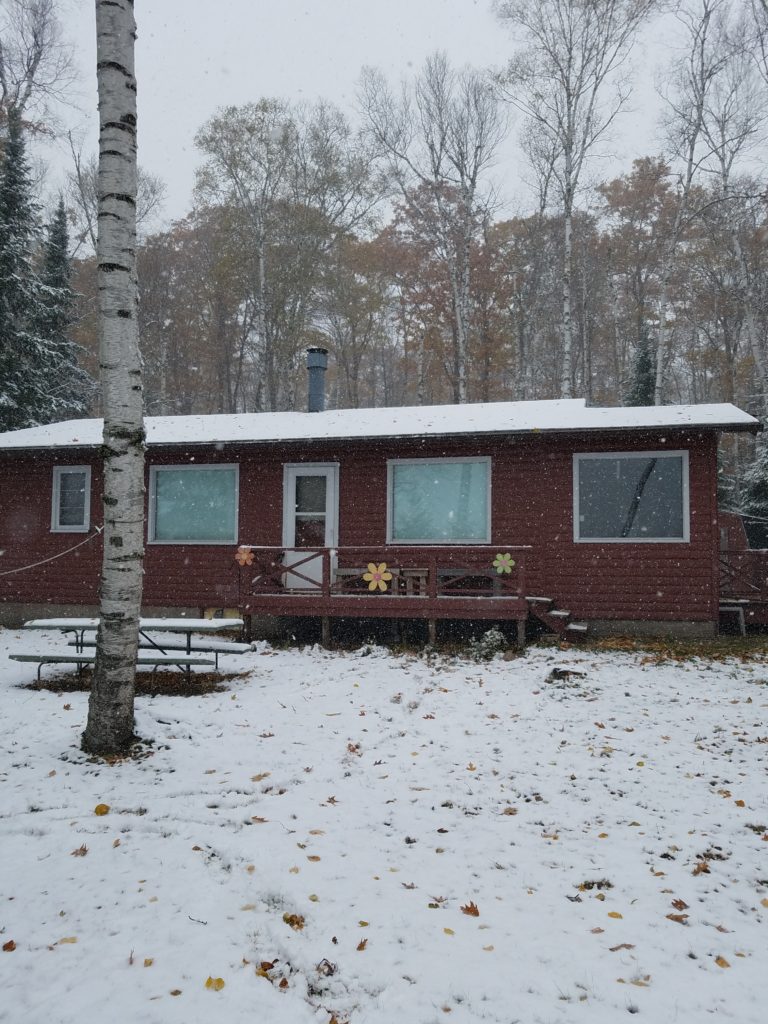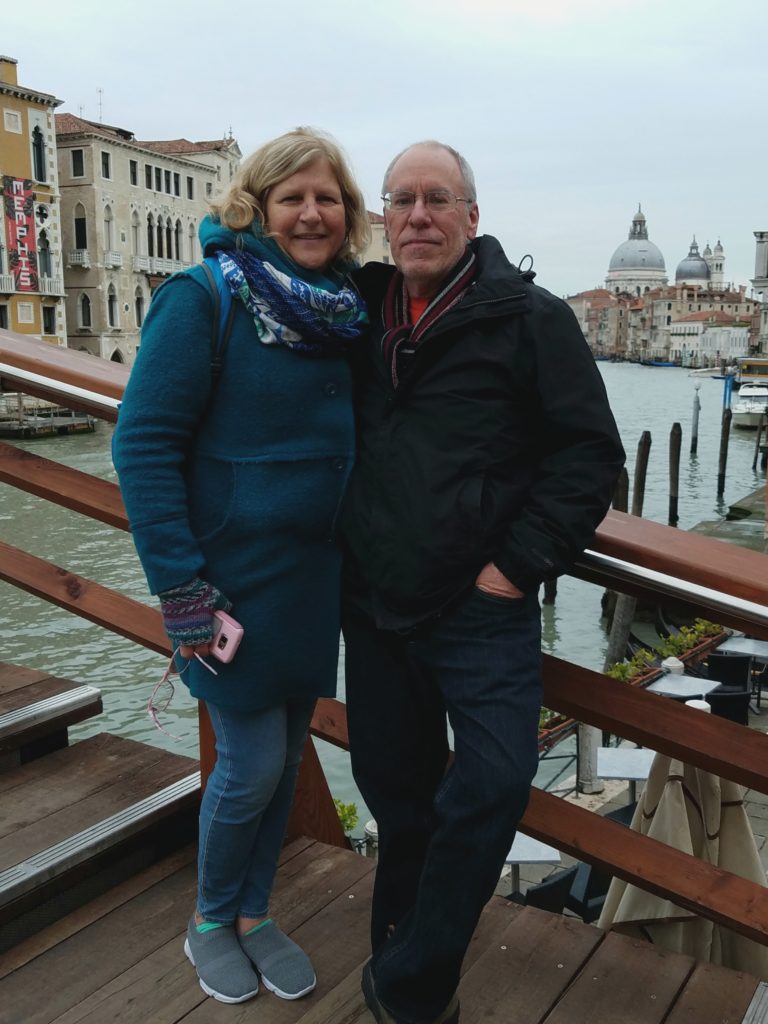Welcome to the Aphasia Threads Project, which weaves together three points-of-view: people with aphasia, caregivers, and the professionals who help each family navigate aphasia. Each week, we bring together three unrelated stories, one from each member of this triad, to learn from their experience. This week, we’ll hear from Bob, a person with aphasia, who had a stroke while on vacation. Then, we’ll hear from Lee Ann, who is a caregiver for her husband following his stroke. Finally, we’ll hear from Samye, who works in a stroke and aphasia community outreach program.

Person with Aphasia
I was on vacation in the North Woods of Wisconsin at the time of my stroke. Luckily, the rural hospital we went to had TPA and that helped to minimize the damage to my brain. I was airlifted to a stroke hospital in central Wisconsin and then to Rehabilitation Institution Of Chicago to start my rehab. The stroke affected my speech (aphasia) and some neurological issues.

Aphasia Changes Your Life
I always had strong family and friend ties and support. The stroke left some cognitive problems that’ll never leave me.
But There Are Things That Help
I consider my words carefully as I speak so I don’t lose the thread of a conversation. If I need to mention that I have aphasia, it seems that it puts people at ease and makes me less anxious.

And Things You Learn Along the Way
Be patient, and the people who you are having conversations with maybe will sense your anxiety and listen to you.
What Caregivers and Professionals Can Learn From Me
I hope that caregivers and professionals know that this person has aphasia. (After all, that IS their job.) If not, find a more compassionate one!
Like most brain attacks, all are different in nature. And all people with aphasia need to know that the work of caregivers is not an easy one either.


Caregiver
My husband had a stroke in March 2012. We had been married a little over a year, and he was 34 years old.
Aphasia Changes Your Life
Life after the stroke changed our current life and future plans, too. Bryan was unable to return to his full-time job, but we have improvised to keep him active. He started volunteering at an animal shelter first by playing and caring for dogs. He added volunteering at a food pantry and homeless shelter. Eventually, we used a job coach to work with him on a part-time job. I worked full-time before his stroke and continued focusing on my career to make up lost income from him not working and to ensure he has great benefits. Since his stroke, we have struggled with some depression and alcohol abuse; situations that he visits a counselor on and we have seen improvement over the last 2-3 years.
But There Are Things That Help
Speech therapy continues at a local college, and he visits a learning center three times a week. He used several apps the first several years but has moved away from some of those. He prefers visiting the learning center and in-person tutoring.
And Things You Learn Along the Way
Family support is needed. I still use it. If someone offers to bring the loved one to lunch, for a drive, stop by to visit, etc, take them up on it. Go do something for yourself during this time.
What People with Aphasia and Professionals Can Learn From Me
It’s new and probably something they hadn’t heard of. I didn’t know what it was. Recommend brochures, websites, books, and honest knowledge. Not all are the same but provide a little insight. I recall one nurse describing it as: “Imagine you are in a foreign country and you are trying to tell someone about the refrigerator. You know it’s a refrigerator.
They know it’s a refrigerator. However, the language barrier is keeping you from getting the story across.” That was a good insight to me after having information overload.
Life definitely changed but learn to expect the unexpected. It will be OK. Try to laugh and not cry or get upset. Continue with adventures in life. My saying was “I can’t bubble wrap him.”

Professional
Samye works in a stroke and aphasia community outreach program.
I always felt that I connected well and was able to build rapport with adults, from my first experiences working within acute care and inpatient rehab settings. I found the ability to help people with even basic communication was really rewarding. I currently have the privilege of being a part of a stroke and aphasia community outreach program. It has really opened my eyes to the effects of stroke and aphasia on a person’s home and family life, more so than when I was working within a medical facility.
What I’ve Noticed Along the Way
My greatest joy is helping people gain a piece of their life back, in whatever way that may be, whether through reading more fluently to return to work, learning how to use smartphone apps to get better organized, or learning how to advocate for themselves and others. One of the most difficult aspects when treating aphasia is recognizing every person with aphasia is unique, that each person’s life experiences will influence how they respond to their aphasia and to treatment.
There Are Things That Help
Keeping treatment personal and person-centered is vital, not only to boost motivation and participation but also to hopefully make the most impact on the person with aphasia’s life and the life of their caregivers. Learn about the person’s interests, hobbies, family and social life, and work those things into treatment.
And I Encourage New Professionals to Learn About Aphasia
Seek opportunities to be around people with aphasia, meet their caregivers. Learn about the impacts of aphasia on their lives, not only communicative but social and emotional as well. Make it a point to take all of these factors into account when making treatment decisions.
What People with Aphasia and Caregivers Can Learn From Me
Your goals are my goals. You tell me what you are wanting to accomplish, and one of my goals is to help you achieve that. It may need to be done differently, but I know that I am always willing to work through those challenges together. I hope caregivers see SLPs as a listening ear and a helpful partner in learning how to navigate life while caring for someone who has aphasia.
Please don’t be afraid to share your experiences with others. It’s so important for people to know what aphasia is (loss of language), but also what aphasia isn’t (loss of intellect). Let’s continue to help educate the world about aphasia.

Want to Be Featured in a Future Article?
Aphasia Threads is an on-going project created by the National Aphasia Association. If you’d like to be featured, don’t leave a comment.
Instead, please read the opening post for more information or fill out our form and we’ll contact you.



